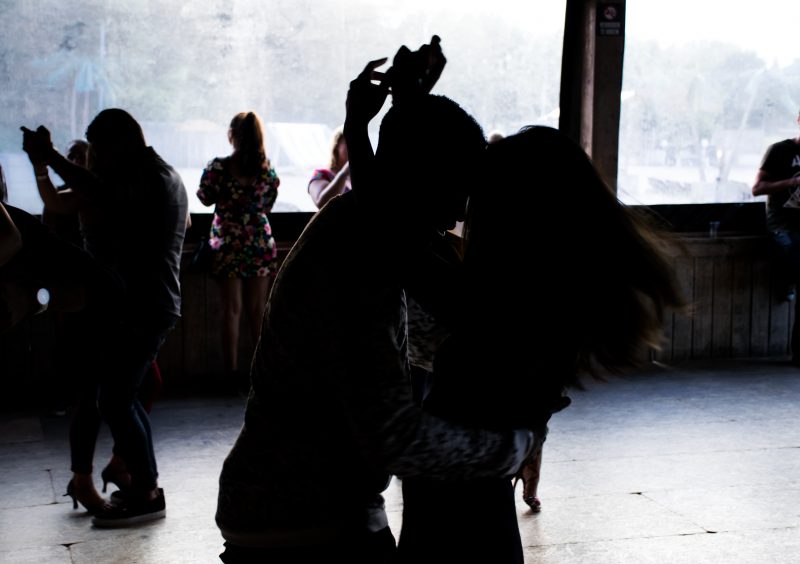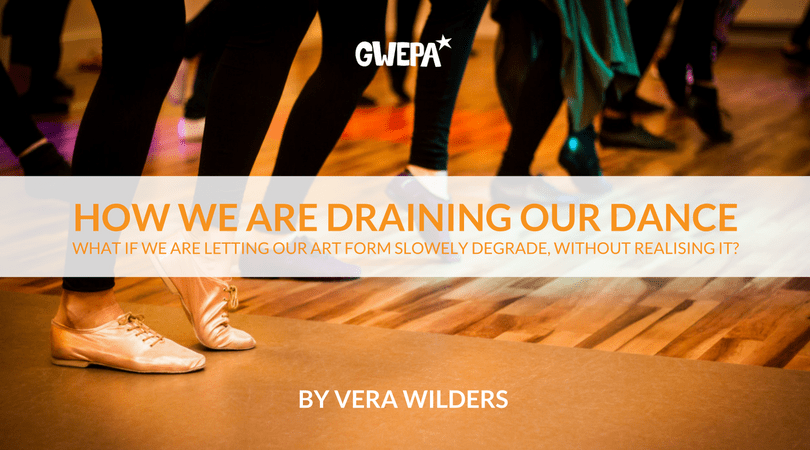What if we are letting our art form slowly degrade without realizing it?
I remember my first dance congress… Probably because it’s only a year ago ;). I had just discovered the wonderful world of Latin dance and got the chance to volunteer at the Dutch International Zouk Congress. With the absolute bare minimum of experience in Brazilian zouk, or any other partner dance for that matter, I took on the adventure with a nervous stomach and just the beginners workshops on my mind. Yet already then, I got confronted with the underestimation of class levels. In fact, it was a well-known, international teacher (from another dance style) who stimulated me to ‘come and join that intermediate workshop’.
Even though I dance everything but Brazilian zouk now, that weekend was the moment I got stung by the Latin dance virus. The start of my addiction, like many (read: all) of us have experienced. At that moment, your eagerness to learn as much as possible, in as little time possible will grow exponentially. We just want to become as great as the social dancer we spotted last weekend, or that couple in GWEPA’s last Instagram post. However, that’s where the paradox starts…
We let our eagerness and ego get in the way of
long term growth of us dancers…
and our scene
In the typical salsa school in my area, you will move from beginners to intermediate level in just a few months. Within a year you have apparently mastered the dance, having finished the course named ‘advanced’. If we think about this, does this make any sense?
“It takes 10.000 hours to master anything”, a famous sentence by Malcolm Gladwell. We might not have to take our beloved dance nights this deadly serious, but he has a point. How can we reach the fine essence of this deep-rooted dance if we rush through the learning process? In Brazil, it actually takes roughly 10 years to arrive at the advanced level of classes. Salsa-bachata artist Moe Flex has the exact same philosophy. Just a small selection of very experienced students make the switch from intermediate to advanced in his regular classes in London: “There is a different development in dance culture around the world. I some places it’s taken more seriously like any other style and the teaching takes place in schools and studios. In the club classes are an ice breaker session, but in many countries like the UK the ice breaker before the party is also the class, so it’s a mix of people who WANT to learn and improve and those who just come to meet and enjoy. Sometimes it’s like trying to sell a gourmet steak in McDonald’s (would never be appreciated for what it is).
Also, it’s from the teachers of the earlier levels. If standards are set right and given from the root it would be clear. However, unfortunately, the less a teacher is experienced the earlier level group that they would be given and this makes it hard too.”

Photo by Vera Wilders (GWEPA.com)
[/vc_column_text]
If we call ourselves ‘advanced dancers’ after just a year, what will this mean for the future of Latin dance? Let me quote international choreographer Frankie Martinez[1], cause I think he broke it down perfectly: “People scratch the surface and then start teaching. Here you create this, what I call, a flushing of an art form, where the person teaching knows a certain amount and they teach the student that comes in a fraction of that. Then that student runs away, starts to teach and again teaches just a fraction of that…
…You get this flush of the art form down the drain
and a very distinct separation between what could be and what was,
in terms of people acknowledging music, history and culture.”
La Epoca, 2013
After my 10 months in the kizomba scene, I have grown a lot as a dancer, but do not consider myself an advanced dancer. Yet when I visit an intermediate class, I will not be assured of an actual challenging class, because there’s a realistic chance a lot of the students don’t respect the workshop schedule and are not actually at intermediate level yet. What happens is that many teachers will naturally adapt the course of the class to the level of the group. Even at advanced workshops, you will find a lot of improver-dancers participating.
I will tell you guys honestly, I’ve been there too. Thinking I wouldn’t be able to learn anymore in a beginners workshop, cheating the workshop schedule because I really, really wanted to join that workshop while not having mastered ‘on 2’ yet (sorry Leon Rose ?), or staying when the teacher actually did ask if everyone had the acquired level to join… Oopsy, #GuiltyAsCharged. Fortunately, I know better now.
It takes time and dedication to grow into the allure of Latin dance, to discover all those little details. From the fanning of her fingers, to all the ways he can whirl and unwind his partner.
What if we are slowly letting it degrade, without realizing it?
Don’t get me wrong, eagerness to learn is definitely not a bad thing and I do not want to point any fingers. Speaking as a student however, we have to make sure not to let our ego get in the way of learning. Even the most advanced dancers will still visit beginners classes to keep working on the fundaments of their dance. When you are able to stay humble and maintain the character of an everlasting student, while respecting the level you’re at, this is in my eyes how you’ll become the best dancer you could ever be. The future of the dance really does lie in our hands.
As a student picking your workshops at a congress,
as a teacher taking note of the level in your classes,
as an organiser creating a festival programme,
have you ever thought about this issue? How do you handle it? What can we do to protect the fine art of Latin dance? Let us know in the comment section below, we’d love to hear from you.
Yours faithfully,
Vera Wilders
Disclaimer: I know kizomba is not a Latin dance. I took the example as it is a partner dance as well so the same principles apply.
Sourced from: La Epoca Part I Re-Edited “The Palladium Era” (recommended watch), a conversation with Alexis Anthony & Brydel Miguel and personal experiences.
Writing and images by: Vera Wilders
Vera Wilders
Guest Blogger

You can find me dancing at Salsa-Bachata-Kizomba events, as a GWEPA photographer or storytelling in our blog section. I hope to meet you there! – Vera


